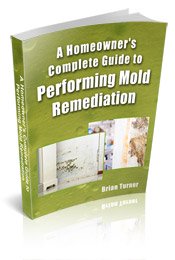Find a Mold Specialist Now
Click or Call, Toll-Free 24/7
Symptoms of Black Mold Poisoning
A mold problem within your home or business can cause many symptoms of black mold poisoning, and a black mold blood test can be used to detect the effects of the toxic mold within your body. Keep in mind that identifying the health problems is the first step, and these problems can be removed with a few medical treatments as well as cleaning up the mold problem to prevent additional exposure.
Common Symptoms of Black Mold Exposure

Symptoms usually begin as respiratory discomfort such as a runny or stuffy nose, sinus infections, and coughing or wheezing. Or, some people may experience the symptoms in their digestive system, such as nausea or bowel problems. These health problems vary from one person to the next because symptoms of black mold poisoning can affect people in different ways.
Sometimes, a person may mistake these symptoms for another illness such as the common cold, and they don’t do anything to figure out the root of the problem. However, unlike the common cold, black mold poisoning symptoms do not go away. If you experience continued symptoms, it is a good idea to have a black mold blood test in order to determine if mold is the cause of your health problems.
How a Black Mold Blood Test Works
If you suspect that mold poisoning is the cause of your health problems, a black mold blood test is the best way to confirm your suspicions. A small amount of blood is drawn, and it is tested for the presence of fungal elements within the body. There is not a way to actually test for mold or fungus within the body, but the blood test looks for indications of mold presence. There are several cellular effects that are considered, which can indicate the effects of black mold poisoning on the body.
Mold testing can also be done in the home in order to determine if there is a source of mold making you sick. This mold testing will look for levels of mold spores, which will indicate whether a mold problem exists and how severe the mold growth is.
Mold testing is effective because it helps you to understand the root of the symptoms of black mold poisoning that you are experiencing. Also, testing can confirm that the problems have been solved after the cleanup process is complete. Verifying that the mold has been eradicated is the best way to prevent future problems.
Consulting With a Doctor and Mold Specialist
When your health is at stake, it is a good idea to talk with a doctor in order to determine the best treatment process to get rid of the mold toxicity within your body. If you know that the symptoms are caused by mold, you can let your doctor know the cause of your health problems and they will determine the best course of action. If needed, a doctor can also give you a black mold blood test.
Additionally, working with a professional mold specialist can help you to effectively clean up the mold problem in order to prevent future symptoms of black mold poisoning. Just like a doctor understands the best treatment for your health, a mold specialist understands the best process to get rid of the mold within your home. They have plenty of experience working with a variety of mold exposure situations, and they will be able to easily and effectively clean up the mold spores and prevent cross contamination throughout the rest of the home.
An initial consultation with a mold removal specialist is free, and they will do a thorough examination of your home and show you all the areas of mold growth, including any hidden mold. For a list of local Mold Removal Specialists that provide a free at-home consultation, follow the link.
Return To Our Main Symptoms Of Black Mold Poisoning Page
Black Mold Health Symptoms Home Page





